Security Sales & Integration: 9/11 20th Anniversary
September 9, 2021
Security Pros Share Reflections, Observations
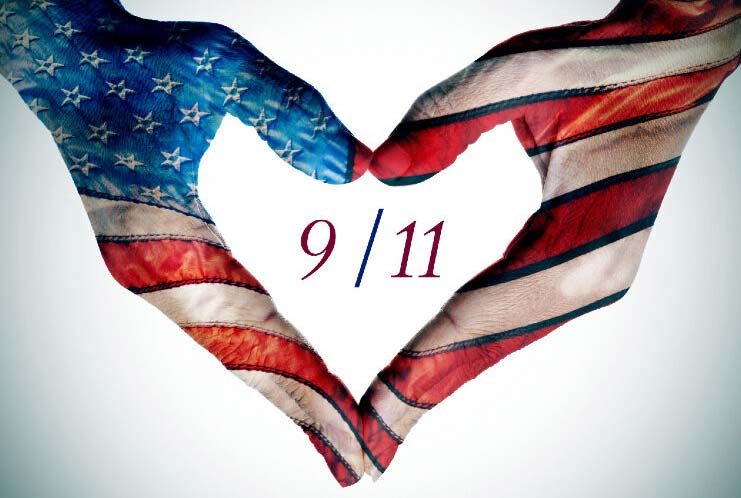 Original article
Original article published by Rodney Bosch via
Security Sales & Integration.
During the course of my reporting for the
9/11 20th Anniversary — the cover story for SSI’s September publication — I asked the many security professionals I interviewed to reflect on how the attacks affected their lives, both personally and professionally. Following are their edited remarks. I welcome you to share your own reflections in the comments section below.
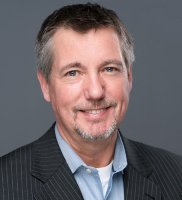
Mark Allen
Mark Allen is General Manager, Premises, for Identiv, a global provider of physical security and secure identification. He has been intimately involved in government contracting in the security industry for many years.
I started with Hirsch in 2003, which was very much involved with federal government. Following the 9/11 attacks the [procurement] spend went way down because the federal government was spending on other things. It wasn’t until 2003 that we started to see it pick up after the DHS started getting ahold on what they were doing and our customers started saying, “We have to move on some of these changes that we’ve had pent up for a couple years in our buildings.”
Before I joined Hirsch I was in IT security. We sold our company to IBM Tivoli, and I was in a spot where I was looking for my next best opportunity. After 9/11 happened it really shook me. It was just breathtaking. I thought we might be witnessing the beginning of World War III here. When I got a call from Hirsch asking, “Do you want to come work for a physical security company,” I couldn’t say yes quick enough. I wanted to be part of that solution.
So for the last 20 years, to be truthful, it’s been frustrating because we’ve been moving at government speed, which unfortunately, I should be used to it now. But every year I know that we can be more secure. I know we can be stopping people from going into buildings that shouldn’t be going into buildings. And then when I see our technology improve, like PIV, I also see technology that can copy cards that government people are not going away from. So that’s why it frustrates me because the technology is there. I spent 20 years developing it, paying money to develop it, and we’re still not there yet.
I still have a real passion for securing buildings; I spend every day talking to federal government chiefs, U.S. Marshals, U.S. attorneys, FBI, IRS; I’m on the phone with high level security people all the time. I have the same conversation: “Why can’t you move more quickly forward on solving this problem?”
I know we’re getting there. More and more of my customers are implementing a FICAM solution as we go. It’s kind of like top down — very high security facilities. The Department of Justice is doing it more than the Department of Interior, for example. So we do see it happening as the need happens.
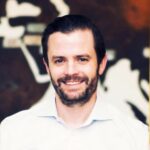 Brian Coulombe
Brian Coulombe is Principal, Director of Operations, at Ross & Baruzzini | DVS, a security consulting and engineering firm noted for its blue-chip clientele, which includes the new One World Trade Center. Coulombe, a university student at the time of the 9/11 attacks, has spent his entire professional career working on the WTC site in some fashion, among other projects across a range of vertical markets.
Brian Coulombe
Brian Coulombe is Principal, Director of Operations, at Ross & Baruzzini | DVS, a security consulting and engineering firm noted for its blue-chip clientele, which includes the new One World Trade Center. Coulombe, a university student at the time of the 9/11 attacks, has spent his entire professional career working on the WTC site in some fashion, among other projects across a range of vertical markets.
It’s the whole reason I’m here, really. I had my first job right out of college. I was down in Florida, and I got a call from my mentor, Phil Santore, who asked if I wanted to come up and work for him on the World Trade Center. I said, “Yes I do.” I was in college when 9/11 happened. I went to college in Eastern Pennsylvania, where a lot of the kids were from New York and New Jersey. I watched people lose parents; I lost a fraternity brother.
That stuff sticks with you forever. The only professional experience that even comes close is we were on the design team for Sandy Hook. To me that was even harder than the World Trade Center, but it was a defining point in my life and the whole reason that I chose a career in security.
I am one of many security professionals that have been involved in the World Trade Center over the years. I have encountered a ton of very, very smart and very, very talented security consultants and engineers along the way.
Everyone that I’ve ever run into, working on that site, has put all of themselves into that project and thinking through what’s the absolute best we can do, what’s the best solution? Not necessarily what’s the most expensive, or what’s the newest technology, but what’s going to be the most effective solution. It’s been a proving ground for a lot of different things over the years, a lot of different types of technology. I think it’s informed our industry in a lot of ways.
So many of the people who are the best in industry have had an opportunity to have their fingerprints on that site and thinking through what we’re doing there. A lot of the lessons learned has continued over time and continued to inform a lot of what we do.
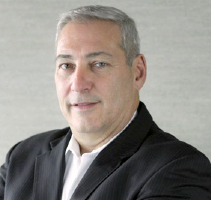 Joe Grillo
Joe Grillo, an SSI Industry Hall of Fame inductee, founded ACRE in 2012 as a platform to consolidate acquisitions in the electronic security industry. His more than three decades in the security industry includes growing HID from a $15 million card and reader company to a dominant $100 million+ industry leader before leading efforts to sell HID to ASSA ABLOY in 2001, where he was promoted several times, eventually running the Global Technology Division that included HID.
Joe Grillo
Joe Grillo, an SSI Industry Hall of Fame inductee, founded ACRE in 2012 as a platform to consolidate acquisitions in the electronic security industry. His more than three decades in the security industry includes growing HID from a $15 million card and reader company to a dominant $100 million+ industry leader before leading efforts to sell HID to ASSA ABLOY in 2001, where he was promoted several times, eventually running the Global Technology Division that included HID.
This isn’t just for our industry, it’s for society as a whole, but coming out of 9/11 there was a much greater appreciation and respect for first responders of every type. Hopefully, the industry has done a good job to recognize that and try to contribute in any way possible to supporting those people that do those tremendous jobs.
We’re all commercial in nature. We have shareholders. We have requirements to do a good job to sell things at a profit and all that. I think there’s probably been more of a feeling of pride in the fact that what we do does protect assets. There’s a feel-good part of being in an industry that does that.
What we do, while it is commercial, while it is a job, while we do have shareholders and they need to have profits, what we do contributes to protecting the assets of an organization. That’s people. That’s intellectual property. It’s all those things. People, of course, being the most important. I think that’s something that has grown over time and having a pride about that and feeling good about that.
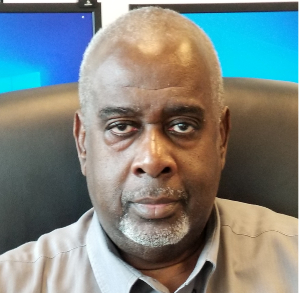 Roy Hayes
Roy Hayes is President and CEO of Virginia-based Systems Engineering Inc. (SEI), noted as one of the first systems integrators to add certified PACS products and services to the GSA program. SEI has won several GSA access control projects nationwide for integrated security systems per FIPS 201 and identity management protocols, utilizing an approach known as the Modular Building Concept (MBC).
Roy Hayes
Roy Hayes is President and CEO of Virginia-based Systems Engineering Inc. (SEI), noted as one of the first systems integrators to add certified PACS products and services to the GSA program. SEI has won several GSA access control projects nationwide for integrated security systems per FIPS 201 and identity management protocols, utilizing an approach known as the Modular Building Concept (MBC).
It’s personal for me. I think for our staff it’s personal. Sometimes you get a little jaded, but this is a great country, and we’re proud to be a part of it. When I was first introduced to the industry a long time ago, a lot of the stuff was done with controllers and relays and switches. Now these access control systems, these video surveillance systems are specialized computers, essentially.
I’m an electrical engineer; I came from the command-and-control world from DoD. I got started in the industry right after 9/11. It’s with tremendous satisfaction that I look back, and I can look at the map of the U.S., including Hawaii and Alaska, and see where we’ve had an input. Our systems have made a difference. When I started this company 30-odd years ago, I wasn’t sure of the impact that we would have, but I wanted to make an impact. Come forward 37 years later, we’ve done that.
My son wasn’t born when I started the company and now he’s my chief technology officer. You go full circle. That young man ended up, and I didn’t push him, but he ended up getting a PhD in engineering and running my advanced programs.
He’s brought in the artificial intelligence, machine learning, autonomous watching and predictive analysis. These are tools that we now have at our disposal to help secure facilities that we didn’t have prior to 9/11. We are slowly implementing some of these new tools, which I think over time will continue to enhance the security of these facilities and personnel, and to be honest with you, our way of life too.
Not only is it important to have these vetted credentials, to have these new systems that can read these credentials, it’s also critically important that we add the component of situational awareness to what we’re trying to do so that we give the security operators and senior management a very good view of what’s going on.
We need to be aware that a situation could go in the wrong direction and be prepared to mitigate that problem. That’s where situational awareness comes in. That’s where the enhanced sharing of intelligence, the sharing of situational awareness becomes paramount in protecting facilities, protecting personnel and to be honest with you, protecting the public, protecting them from themselves. If we can disrupt something from happening, then other people, even the ones that are protesting, we can avert them from getting hurt.
[Helping protect lives and property] through our integration services, it makes you feel good. It makes you feel that you’re not living in a vacuum, you’re sitting on the front line. We don’t carry guns but what we do carry is a lot of intelligence on how to build these systems, how to design these systems; working with the manufacturers, working with the government to understand their requirements, the end users, and then coming up and devising a plan to go forward. It’s a good feeling.
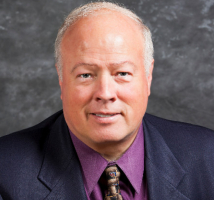 Jim Henry
An industry veteran and SSI Hall of Fame inductee, Jim Henry was integral to the success of family-founded Henry Bros. Electronics (HBE), with 35+ years coordinating some of nation’s most sophisticated integrated security systems for government, commercial and educational facilities. His career has included executive roles with Securitas Electronic Security and Kratos Public Safety & Security Solutions. He currently serves as an independent consultant and is co-host of The Risk Advisor Podcast.
Jim Henry
An industry veteran and SSI Hall of Fame inductee, Jim Henry was integral to the success of family-founded Henry Bros. Electronics (HBE), with 35+ years coordinating some of nation’s most sophisticated integrated security systems for government, commercial and educational facilities. His career has included executive roles with Securitas Electronic Security and Kratos Public Safety & Security Solutions. He currently serves as an independent consultant and is co-host of The Risk Advisor Podcast.
9/11 was a terrible tragedy that might have been avoided if we were more respectful of the threats to free societies from ideological extremists and totalitarian regimes that view freedom as the main threat to their ability to control their populations. Other than a brief five- to seven-year period after 9/11, the only perceptible “lesson learned” 20 years after the attack is Local Law 26 in the New York City Building Code.
Local Law 26 requires Emergency Action Plans (EAP) be submitted and approved by the NYC Fire Department for all class A buildings. I had expected similar requirements would be instituted in other cities but that has not been the case.
Since 9/11 — and particularly within the last five years — advances in processor speed and machine learning enable today’s security systems to be more effective forensic tools but, in addition, provide real time actionable intelligence from thousands of sensors. That was barely a dream of developers back on 9/11.
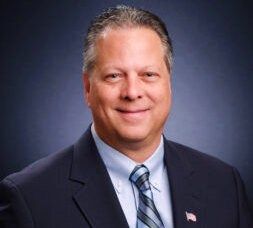 Mike Ruddo
Mike Ruddo is Chief Strategy Officer of Herndon, Va.-based Integrated Security Technologies (IST), one of the first GSA contractors to add the new GSA Special Item Numbers for CSEIP Certification for identity management and PACS products. He comments here on how he views IST’s responsibility and place in the realm of protecting lives and property.
Mike Ruddo
Mike Ruddo is Chief Strategy Officer of Herndon, Va.-based Integrated Security Technologies (IST), one of the first GSA contractors to add the new GSA Special Item Numbers for CSEIP Certification for identity management and PACS products. He comments here on how he views IST’s responsibility and place in the realm of protecting lives and property.
Morally, it’s a responsibility to do things correctly, and keep people safe. I think that pretty much goes without saying. I think most system integrators would agree with that. Our ability to navigate things in the federal space is pretty streamlined. We’ve been doing it for a long time, we know the ropes. When you have events like 9/11 — or before that, the Africa embassy bombings — and you get a lot of people come into the space because they see an opportunity, and they don’t have that experience, they don’t have that patience.
Sometimes things don’t get done right, and the federal government ends up spending money incorrectly due to some bad advice.
From a “what keeps me up at night” perspective, those are our tax dollars. I pay taxes every year [chuckles], I want to make sure that tax dollars are spent accurately and correctly, and on stuff that’s needed. We’ve all heard the horror stories out there. Ultimately, I think our ability to navigate the space is obviously huge. Just understanding the space and timelines for things to take place, and acceptance of that is really what keeps us going from a company perspective. Ultimately, morally we carry that burden seriously.
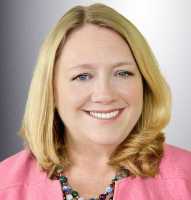 Lynn de Séve
Lynn de Séve is President of GSA Schedules, a consulting company she founded in 1984. The Annapolis, Md.-based firm provides support services to assist companies in the preparation and submission of GSA Schedule contracts primarily for the security industry, with overlap into fire alarm systems, building controls, IT and other technology.
Lynn de Séve
Lynn de Séve is President of GSA Schedules, a consulting company she founded in 1984. The Annapolis, Md.-based firm provides support services to assist companies in the preparation and submission of GSA Schedule contracts primarily for the security industry, with overlap into fire alarm systems, building controls, IT and other technology.
I was with my security colleagues and GSA contracting officers in Ft. Worth, Texas, in my hotel room waiting for the start of a GSA industry meeting. I happened to turn on the television to check the weather.
I will never forget the horror of watching the second plane fly into the other twin tower live, to hear about and see the crash at the Pentagon. I was a single mother, and my young children were back in D.C. with a babysitter. I felt like the world as we knew it was going to change.
All of my colleagues and I did not know what tragic horror lay before us, but we had to get home, somehow. All planes had been grounded. We borrowed our rental car for a longer journey and drove back to D.C. the next day, dropping folks close to home on the way. It was a day that changed our lives forever and certainly that changed everything about how we were going to protect ourselves going forward.
I was proud of how our security industry stepped up to help in terrible tragedy and loss on 9/11. I continue to be proud to be a part of those who work to protect our nation.
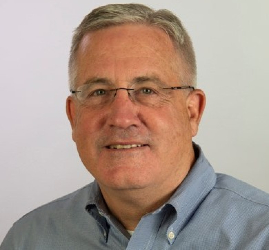 Robert Solomon
In 2020, Robert Solomon retired from the National Fire Protection Association where he served for more the 30 years, including as Director of NFPA’s Built Environment Codes and Systems group. He currently serves as Principal Engineer and Chief Development Officer for SLS Consulting. He begins his comments addressing the question of how much safer buildings are in the years following the 9/11 attacks.
Robert Solomon
In 2020, Robert Solomon retired from the National Fire Protection Association where he served for more the 30 years, including as Director of NFPA’s Built Environment Codes and Systems group. He currently serves as Principal Engineer and Chief Development Officer for SLS Consulting. He begins his comments addressing the question of how much safer buildings are in the years following the 9/11 attacks.
I’m a little bit in contrary to that because my view had been pre 9/11 that our high-rise buildings in the United States were very safe to begin with. What I’ve always tried to be careful with is this is such an extreme event that we simply don’t design for this event. And because we never have — I don’t think we ever will — I always put that caveat on it. With that said, though, obviously, No. 1, there were a lot of things that worked pretty well that morning. One of the factors: the two buildings stood up as long as they did is great. That did allow a lot of people to get out of there.
To me, I always try to look for some positive. I think what it did is it pushed along a lot of these concepts and notions that people had been exploring [for many decades in the time since megastructures and super tall buildings were being constructed going back to 1911.]
To me the big thing is it really helped the code world, the architectural world, the engineering world. It really helped propel a lot of these ideas forward. It helped move the needle, albeit slowly on things like mass notification, that we started talking about back in 1996 after the Khobar Towers bombing. It moved along with discussions about the thermal attack on structural systems during a fire event. These are all things that have been out there mostly in the research world. From my seat, those things really helped a lot.
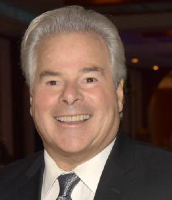 Richard Soloway
Richard Soloway, an SSI Hall of Fame inductee, is President and CEO of Napco Security Technologies, a New York-based manufacturer he founded in 1969.
Richard Soloway
Richard Soloway, an SSI Hall of Fame inductee, is President and CEO of Napco Security Technologies, a New York-based manufacturer he founded in 1969.
As a native New Yorker, not far from the WTC, thinking about the tragic events that occurred on 9/11, still moves me today, evoking the most inconceivable images, as vividly as if it were only yesterday. As terribly sad a memory it is, ever etched in our hearts and minds, in retrospect, I think it also marked a pivotal moment, where the entire country, it seemed, turned to the security industry for help and preventative technologies to safeguard the future.
I was then and am still proud to have Napco be part of that solution. In the immediate wake of the tragedy, there was naturally a greater emphasis on protecting homelife and time spent with family, and Napco’s Gemini security/fire alarm system’s well-known reputation increased its popularity.
Industrywide too, I believe 9/11 expedited the development and acceptance of many of those new commercial technologies we rely on today. For our part, we developed very actionable, threat-level visitor management and video integration in our enterprise access control systems that today we can, incredibly, control from a smartphone. We also added advanced global lockdown and instantaneous free-passage capability in our networked wireless locks — whether a few doors or a whole campus — ideal for safe entry by first responders.
And it was, in part, the 9/11 tragedy and the comm issues and gaps it revealed that sparked the need for redundant emergency communications from which our StarLink Cellular began its development a few years later. Initially designed as a universal backup alarm communicator for any alarm that was using landlines, StarLink’s now relied upon for fast primary cellular emergency and alarm communications, even code-compliant for commercial fire alarms, and as a POTs-line replacement.
In fact, StarLink Fire is also the security industry’s first FirstNet-certified communicator. As you know, FirstNet was a network that came from the U.S. government’s 9/11 Commission Report, in direct response to the 9/11 tragedy, especially designed to ensure first responders, i.e., firefighters, EMTs and EMS, get dedicated priority response information in an emergency.
AT&T’s been building-out the FirstNet network in metro and rural areas, since it was enacted in 2012 by Congress and now it’s covering the entire U.S. All the equipment-providers and the dealers for FirstNet, must be independently certified in a rigorous process, and we were honored to be the very first communicator manufacturer to do so, and available for all panel brands, because we take that responsibility, for life safety of the brave first responders and public safety, very seriously.